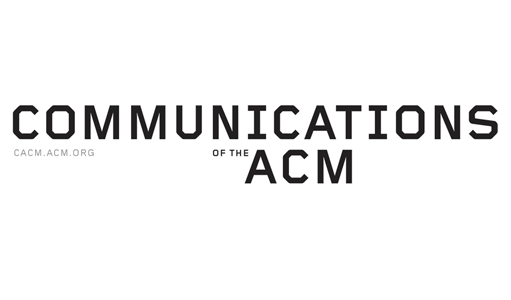Hello, World!
I’m Przemek (pronounced “Pshemek”). I’m an Assistant Professor of Computer Science at the University College Dublin and an Adjunct Assistant Professor of Computer Science at the University of Massachusetts Amherst. I lead the (transatlantic) SIMS Lab, and related public-interest initiatives, including SocialPolls.org and the Uncommon Good blog, and led the EQUATE initiative.
An informed public is a cornerstone of democracy. My research contributes novel AI-powered methods to understand and inform the public agenda through modern social media algorithms and AI systems.
My goal is to help ensure that the digital media and AI systems of tomorrow are representative, fair, and explainable, and aligned with the public good.
- To deepen our understanding of public agenda, I introduce novel AI-based methods measuring representative signals from large-scale social media and news media data, e.g., public support for presidential election candidates.
- To inform public agenda, I pioneer representative algorithms adhering to legal provisions, e.g., mitigating discrimination, while providing AI explanations.
Research areas: fair and explainable machine learning, data science, computational social science, social media, network science, causality, open-world learning.
News
2026

- 📰 Our opinion article “Research Opportunities and Challenges of the EU’s Digital Services Act” has been accepted for publication in The Communications of the ACM!
2025
- 🏆 Our paper “Election Polls on Social Media: Prevalence, Biases, and Voter Fraud Beliefs” received Best Paper Honorable Mention at ICWSM’25! Congratulations team!

- 📺 Our study “Political Biases on X before the 2025 German Federal Election” has been broadcast by ZDF (German public TV channel). I attach our Uncommon Good blog post and a research report. Later this year we produced a more comprehensive report for the 2025 presidential election in Poland, subsuming our research for Germany and Poland.
2024

- 📰 Our eLetter in Science received wide media coverage from The Wall Street Journal, Frankfurter Allgemeine Zeitung, Haaretz, ScienceInsider, and other media outlets!

- 🔎 Science published our eLetter, along with an editorial and article discussing its implications. In it, we call into question a widely reported Science paper, funded by Meta, which suggested that Facebook’s news feed algorithm is effective at preventing misinformation.

- 📰 Our research on election polls on social media (socialpolls.org) has been covered by various media outlets, including Tech Policy Press, El País, Fox network, Phys.org, and reached the front page of Reddit Science!
2023
- 📰 I’ve been quoted in the BusinessWest article “AI Promises To Impact The Workforce In Unexpected Ways”
- 🧑🏼🏫 I was honored to give a talk about a path towards fair and explainable automated decision-making and to participate in a panel at a Responsible AI workshop at Carnegie Mellon University. I outline our vision in these two slides.
- 🧑🏼🏫 UMass Amherst released an article quoting me and my graduate course on Responsible AI. In today’s globalized world, we need to design techno-social systems with social responsibility in mind.
2022
- 🧑🏼🏫 I instructed for the first time my Responsible AI course.
- 🔎 We successfully organized the NLP competition SemEval-2022 Task 8 on “Multilingual news article similarity” that attracted over 30 research teams and released the largest labeled multilingual dataset of news articles published across 124 countries.
$\le$ 2021
🏆 Our full-length paper “Demographic Inference and Representative Population Estimates from Multilingual Social Media Data” received the “Best Poster” award by popular vote!
- 🏆 Our paper “Fast filtering and animation of large dynamic networks” received WICI Data Challenge Award from the University of Waterloo!
- 📰 Coverage by outlets such as WSJ and NYT of the Observatory on Social Media research, which used my online algorithm for fast graph filtering and visualization.

- 📰 El Mundo, El ‘oráculo’ de los bytes (pdf).
- 📰 El Mundo, Los entresijos de Twitter.
 My (novel) course on Responsible AI. Image by Mohamed Hassan.
My (novel) course on Responsible AI. Image by Mohamed Hassan.

